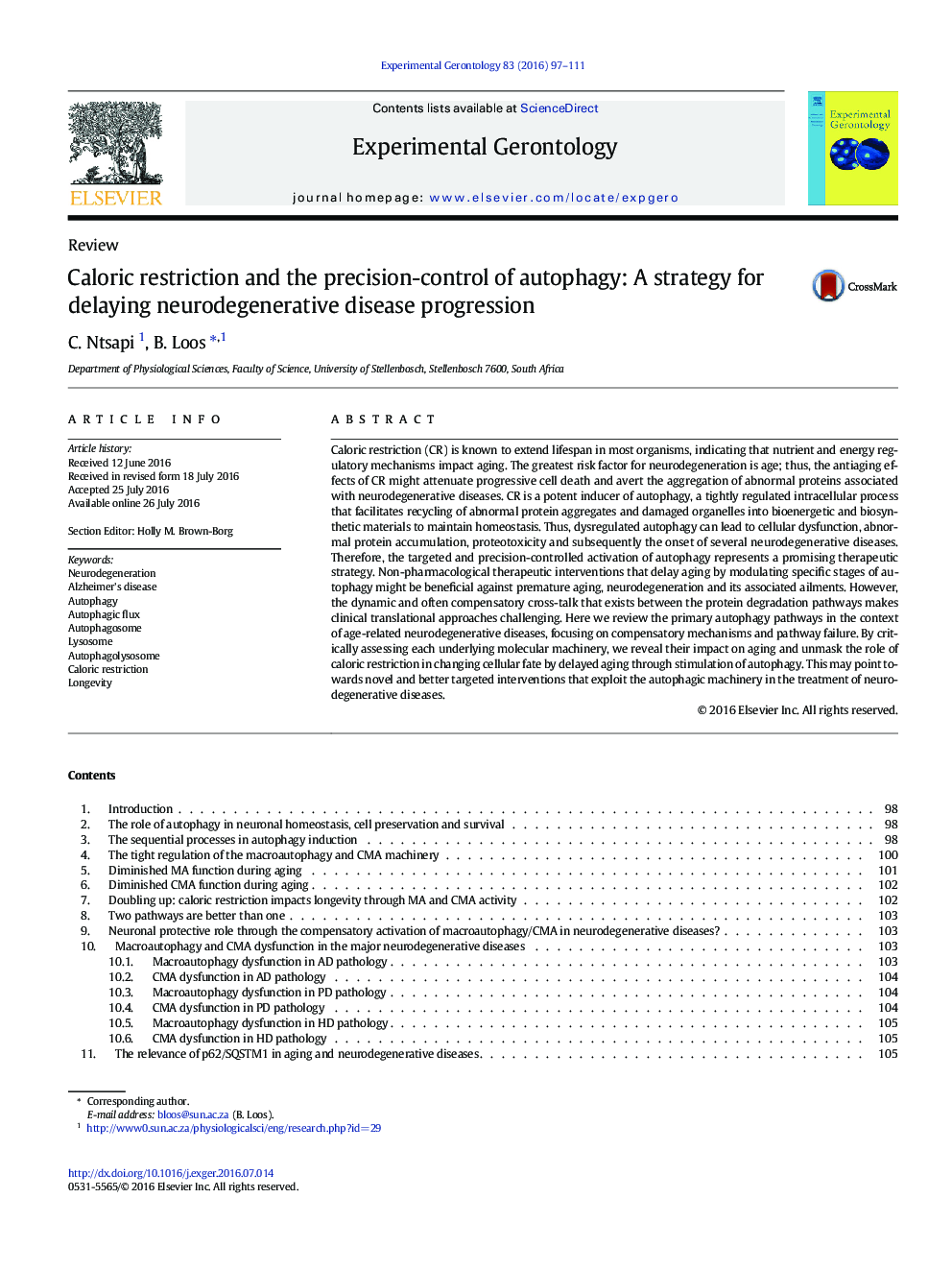| کد مقاله | کد نشریه | سال انتشار | مقاله انگلیسی | نسخه تمام متن |
|---|---|---|---|---|
| 1906084 | 1534858 | 2016 | 15 صفحه PDF | دانلود رایگان |

• Age-related dysregulation of essential autophagy-related processes, particularly macroautophagy and chaperon-mediated autophagy (CMA), are contributory processes to cellular damage, such as the accumulation of damaged or toxic protein aggregates, thus compounding the problems associated with age.
• The compensatory cross-talk between macroautophagy and CMA is important for the regulation of cellular homoeostasis, as these pathway are not mutually exclusive.
• Neurodegenerative diseases such as Alzheimer's, Parkinson's and Huntington's disease are characterized by accumulation of protein aggregates. Dysregulated macroautophagy and CMA have been observed to be important mediators of these pathologies and activation of the former has been shown to be a promising therapeutic strategy.
• Pharmacological and genetic inhibition of the Insulin–Akt–mTORC1 signaling pathway is associated with increased lifespan via macroautophagy, which is a common downstream effector in various life-prolonging signaling pathways induced by calorie restriction. These effects are abrogated in the absence of macroautophagy, therefore highlighting the central importance of this catabolic process in the promotion of lifespan.
• Studies of long term caloric restriction and longevity in humans are limited, however, the impact of prolonged caloric restriction appears to be beneficial in non-human primates and demonstrates profound anti-aging effects which may delay the onset of selective neurodegenerative pathologies.
Caloric restriction (CR) is known to extend lifespan in most organisms, indicating that nutrient and energy regulatory mechanisms impact aging. The greatest risk factor for neurodegeneration is age; thus, the antiaging effects of CR might attenuate progressive cell death and avert the aggregation of abnormal proteins associated with neurodegenerative diseases. CR is a potent inducer of autophagy, a tightly regulated intracellular process that facilitates recycling of abnormal protein aggregates and damaged organelles into bioenergetic and biosynthetic materials to maintain homeostasis. Thus, dysregulated autophagy can lead to cellular dysfunction, abnormal protein accumulation, proteotoxicity and subsequently the onset of several neurodegenerative diseases. Therefore, the targeted and precision-controlled activation of autophagy represents a promising therapeutic strategy. Non-pharmacological therapeutic interventions that delay aging by modulating specific stages of autophagy might be beneficial against premature aging, neurodegeneration and its associated ailments. However, the dynamic and often compensatory cross-talk that exists between the protein degradation pathways makes clinical translational approaches challenging. Here we review the primary autophagy pathways in the context of age-related neurodegenerative diseases, focusing on compensatory mechanisms and pathway failure. By critically assessing each underlying molecular machinery, we reveal their impact on aging and unmask the role of caloric restriction in changing cellular fate by delayed aging through stimulation of autophagy. This may point towards novel and better targeted interventions that exploit the autophagic machinery in the treatment of neurodegenerative diseases.
Journal: Experimental Gerontology - Volume 83, October 2016, Pages 97–111